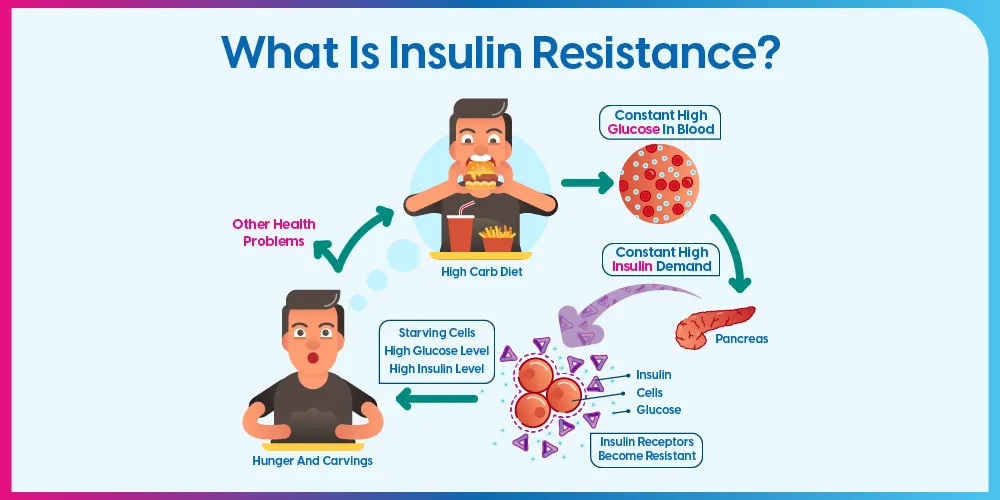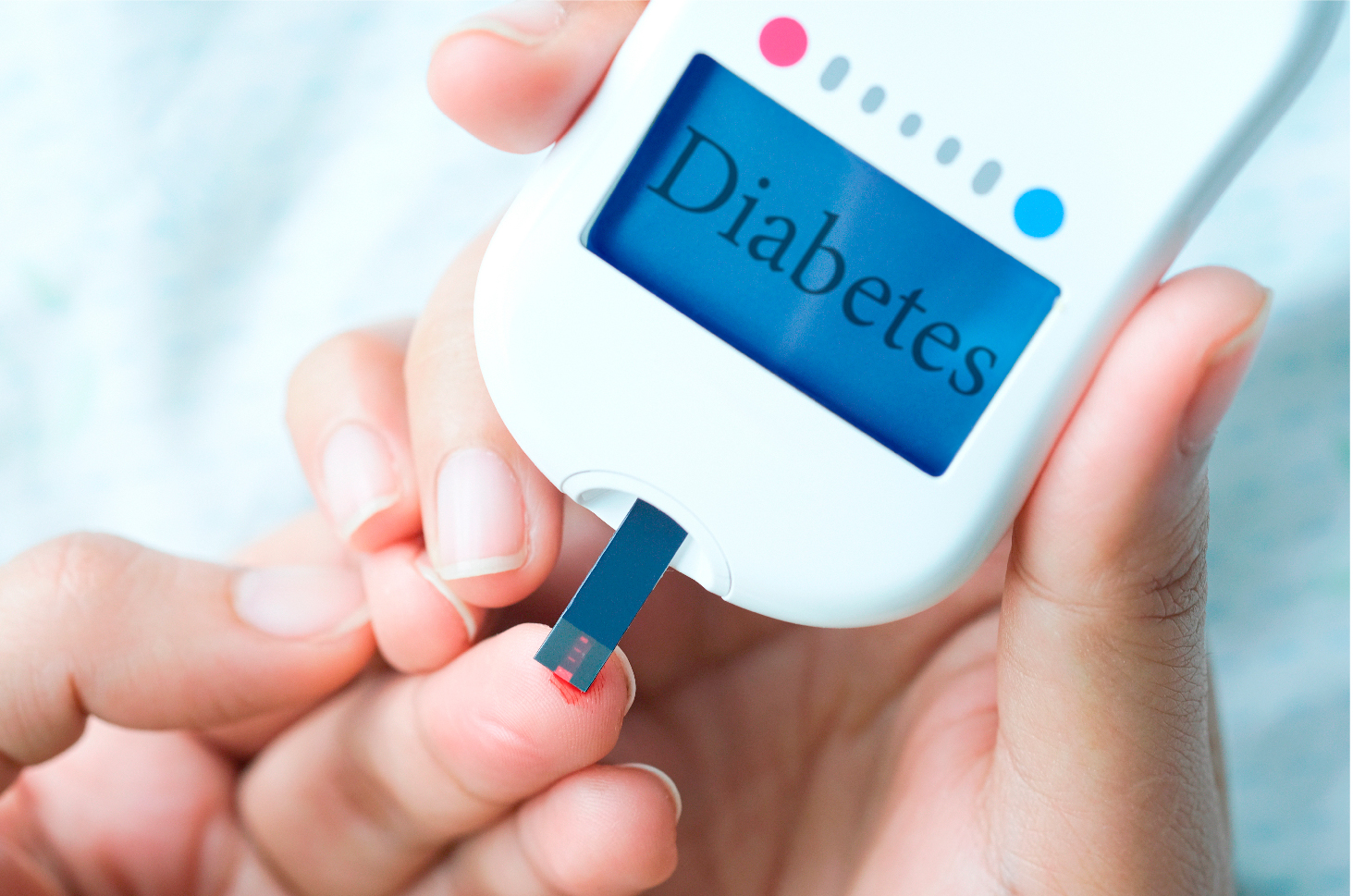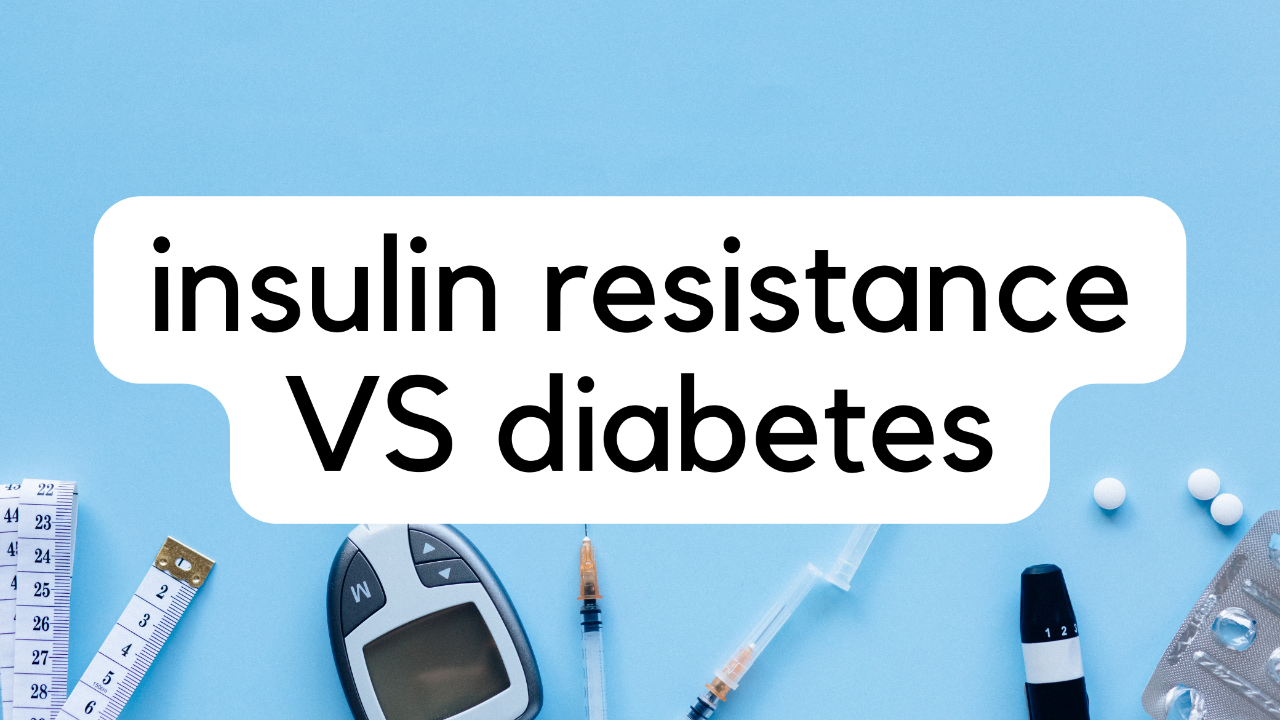
Does insulin resistance always mean that you have developed diabetes? Not exactly; insulin is an important hormone for regulating your blood glucose levels. Two commonly discussed conditions related to blood sugar regulation are insulin resistance and diabetes. While the terms are often used interchangeably, they are not the same.
Insulin Resistance
Insulin is an anabolic hormone secreted by your pancreas. While insulin has many major functions, its foremost role is to maintain blood sugar levels. How does it do that? When your sugar level spikes, the pancreas produces insulin, and this insulin enables cells to take up glucose into it, eventually reducing blood glucose levels. The absorbed glucose is either stored or utilized for energy. Insulin resistance is seen when the target cells in the liver or muscles do not respond well to insulin and lag in glucose uptake.

Diabetes
Diabetes is a chronic metabolic disorder characterized by elevated blood sugar levels. It occurs when the pancreas does not produce enough insulin (type 1 diabetes) or when the body cannot effectively use the insulin produced (type 2 diabetes). In type 2 diabetes, insulin resistance is a common underlying factor, but it is not present in all cases of diabetes.

Understanding the Differences
As you can see, insulin resistance and diabetes are related conditions; but they have distinct differences.
Insulin Resistance:
What It Is: Insulin resistance is a condition where the body's cells don't respond well to insulin, a hormone that helps manage blood sugar levels.
Impact on Blood Sugar: Because cells are less responsive to insulin, the pancreas produces more insulin to keep blood sugar levels normal.
Health Effects: Over time, this can lead to higher blood insulin levels and eventually strain the pancreas.
Early Stage: Insulin resistance is often a precursor to diabetes but doesn't always result in it if managed properly.
Diabetes:
What It Is: Diabetes is a chronic condition where the body either doesn't produce enough insulin or can't use it effectively, leading to high blood sugar levels.
Types: There are two main types: Type 1 (where the body doesn’t produce insulin) and Type 2 (where the body doesn’t use insulin properly).
Impact on Blood Sugar: In diabetes, blood sugar levels remain high because the body can't produce enough insulin or use it properly.
Health Effects: High blood sugar can damage organs and lead to serious health complications like heart disease, kidney failure, and vision problems.

Symptoms
Knowing the symptoms of these conditions will help you with early identification and management. Both insulin resistance and diabetes share several common symptoms, such as fatigue, increased thirst, frequent urination, and blurred vision. These symptoms arise due to the high blood glucose levels that occur when insulin resistance is present or when diabetes is poorly controlled. However, it is important to note that not everyone with insulin resistance will exhibit these symptoms, and they may go unnoticed until diabetes develops or other complications arise.
How can you Diagnose?
Diagnosing insulin resistance and diabetes involves assessing blood sugar levels and insulin levels. Fasting blood sugar tests, oral glucose tolerance tests, and HbA1c tests are commonly used to determine if blood glucose levels are within the normal range or if insulin resistance or diabetes are present. Additionally, tests such as fasting insulin levels and the homeostatic model assessment of insulin resistance (HOMA-IR) can provide insights into the degree of insulin resistance in an individual.
How can you Manage?
Insulin resistance can result from various factors, including genetic predisposition, obesity, sedentary lifestyle, poor diet (high in processed foods and sugars), hormonal imbalances, and certain medical conditions. Some of the strategies that can help improve insulin sensitivity and potentially reverse insulin resistance are given below:
Healthy Eating
Follow a balanced diet focusing on consuming whole, unprocessed foods such as fruits, vegetables, whole grains, lean proteins, and healthy fats, and limit the consumption of sugary and processed foods.
Weight Management
Losing excess weight, particularly abdominal fat, can significantly improve insulin sensitivity. Aim for gradual and sustainable weight loss through a combination of a balanced diet and regular physical activity.
Stress Management and Quality Sleep
Chronic stress can contribute to insulin resistance. Explore stress reduction techniques such as meditation, deep breathing exercises, yoga, or engaging in activities you enjoy to help manage stress levels. Also, prioritize your sleep.
Conclusion
Knowing the difference between insulin resistance and diabetes is important for managing your health. While insulin resistance can lead to diabetes, it doesn't always have to if managed properly. Early diagnosis and recognizing symptoms like fatigue, thirst, and frequent urination can help. Adopting a healthy lifestyle with a balanced diet, regular exercise, weight management, and good sleep can improve insulin sensitivity and prevent diabetes. Taking these steps can help you stay healthy and manage your blood sugar levels effectively.
Frequently Asked Questions (FAQs)
1. Can insulin resistance be reversed?
While it may not be entirely possible to completely reverse insulin resistance, it can be significantly improved and managed through lifestyle modifications. By adopting a healthy lifestyle, individuals can improve insulin sensitivity, reduce the risk of developing diabetes, and effectively manage these metabolic conditions. However, reversal is also possible with keen supervision and adherence to dietary modifications.
2. Can diabetes be reversed?
Type 1 diabetes cannot be reversed as it involves the loss of insulin-producing cells in the pancreas. However, type 2 diabetes can sometimes be reversed or effectively managed through lifestyle modifications, weight loss, and medication if necessary. It is important to work with healthcare professionals to develop an individualized treatment plan.
3. What causes diabetes?
The causes of diabetes differ based on the type:
- Type 1 Diabetes: Type 1 diabetes is an autoimmune condition where the immune system attacks and destroys the insulin-producing cells in the pancreas.
- Type 2 Diabetes: Type 2 diabetes is primarily attributed to lifestyle factors such as poor diet, lack of physical activity, obesity, and genetic predisposition. Insulin resistance is a significant factor in the development of type 2 diabetes. Thus focusing on insulin resistance can be your best bet in the prevention of diabetes.
Disclaimer: The information and other content provided in this blog, or in any linked materials, are not intended and should not be construed as medical advice, nor is the information a substitute for professional medical expertise or treatment. If you or any other person has a medical concern, you should consult with your healthcare provider.
Reference
- https://www.healthline.com/health/is-insulin-resistance-the-same-as-diabetes
- https://flushinghospital.org/newsletter/what-is-the-difference-between-diabetes-and-insulin-resistance/
- https://www.bswhealth.com/blog/insulin-resistance-causes-signs-and-what-to-do-about-it
- https://www.goodrx.com/conditions/diabetes-type-2/differences-between-type-1-type-2-diabetes-symptoms-causes


.png)


